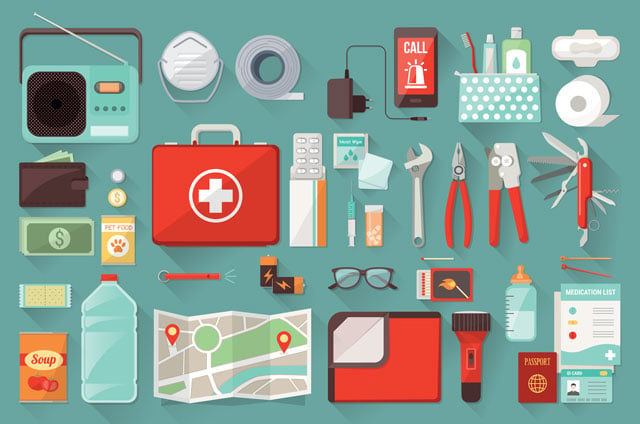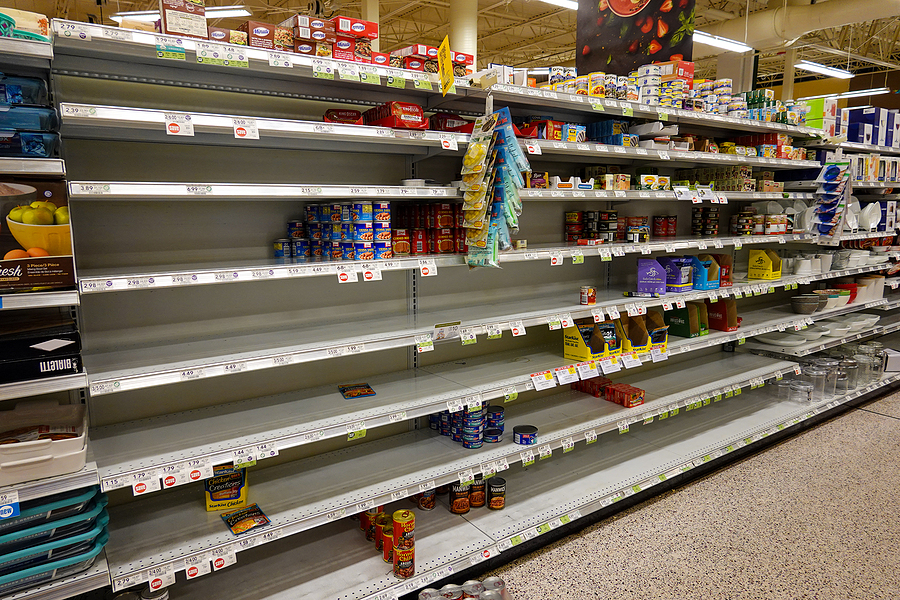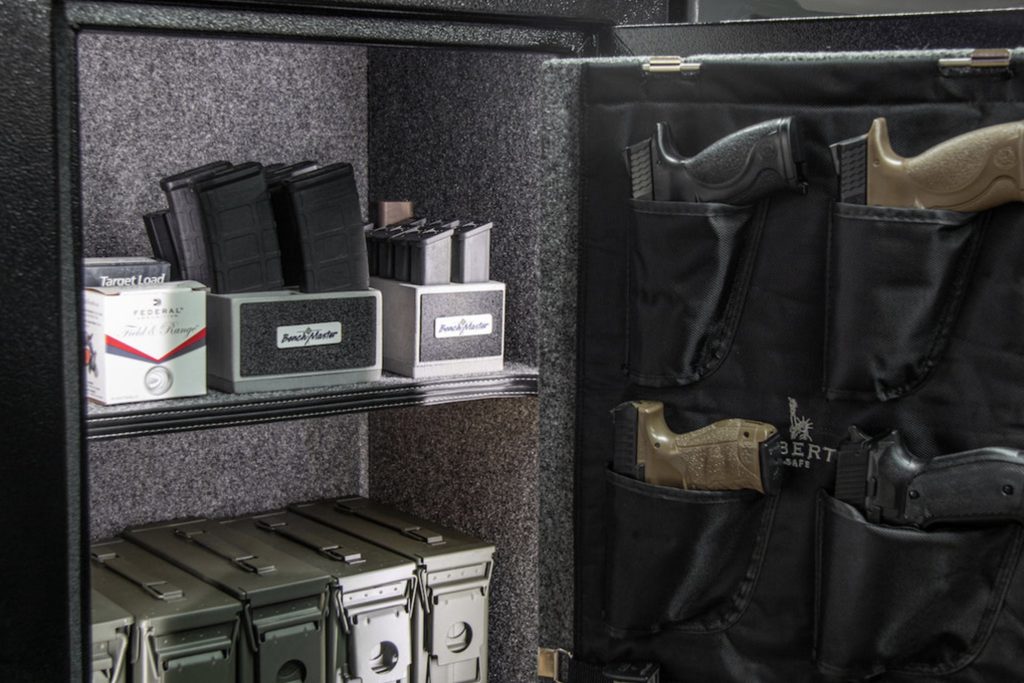
Yet another bit of good news dropped this week. The government of Denmark has joined other European countries, such as Great Britain, Sweden, Latvia and Estonia in advising its citizens to be prepared for a potential “hybrid war” with Russia. The Danes are once more citing the threat of cyberattacks against their infrastructure. Where have we heard that before?
The Danish Government is advising its people to have enough food, water, batteries, candles, medicine, etc. to last three days without power or the ability to go to the grocery store. For those who have been paying attention and preparing for civic emergencies, three days is the Kindergarten level of preparedness.
Three days seems to be the amount of time that the bureaucrats workshopped — much like six feet of separation — so as to seem reasonable and prudent without sending the masses into a state of panic. Imagine if the government came out and said, “Everyone needs to have six months worth of water, food, and medicine on hand.” Would the sheep go into a panic-buying frenzy or would they just ignore the warning as usual?

A 20-Year History of Apathy
Back during the Cold War era, we used to call people who actually thought you should have ample food, water, medicine, etc. in your home “survivalists” and that descriptor was more often than not used as a pejorative. Then the Y2K scare came along and the government said, “Don’t panic, but you should probably have supplies at home.”
Y2K proved to be a tempest in a teapot, so we all went back to business as usual. Until, that is, 9/11/01.
After the attacks on September 11, the government was back to telling people to have a minimum three-day supply, but this time they added plastic sheeting and duct tape to the mix. True to form, Americans were concerned about preparedness for perhaps a year, two tops. Then they went back to their normal routine.
Hurricane Katrina struck the United States Gulf Coast in September of 2005, hitting Mississippi the hardest, though you wouldn’t have known it from the news coverage. Once more, the government reminded people to have three days of supplies at home. But Katrina was portrayed as George Bush’s fault. He should have “cared more,” so people quickly stopped worrying about that.
When Hurricane Sandy hit the eastern seaboard, particularly in the New Jersey/New York area, that was October of 2012. Once again, millions of people acted surprised and were caught without basic necessities. Cue the public services announcements for…you guessed it…three days worth of stuff.
And then we had the worldwide crisis of the SARS-CoV2 pandemic. And, once more, we witnessed nationwide panic-buying. And again, we once again heard advice from the government to have three days of supplies on hand.
To the outside observer, it would almost seem as though the people of the United States are the textbook definition of slow learners.
Be Ready: Stuff
The advice, “Be ready so you don’t have to get ready,” had been floating around for decades. I suppose it has been more than thirty years since I first heard it. The subtext of that phrase is that when it’s time to get ready, it’s already too late.
In the area of stuff; food, water, medicine, batteries, flashlights, guns, ammunition, power generators, water-filtration systems, fuel, etc. As often as not, people don’t choose to “get ready” until the threat is right there in their faces.
For ten years my family resided in the coastal Mississippi area and we lived through numerous hurricanes. The sad reality that we witnessed was, despite storm tracking that predicted dangers at least a week out, sometimes longer, panic buyers would rush the stores during the 24 hours before the hurricane made landfall and run them out of bottled water, canned food, and batteries.
The first year we moved to the Biloxi area we created a “storm locker” and filled it with emergency supplies that were labeled with the “use by” dates so we could rotate them out. My wife got in the habit of purchasing replacement items for annual rotation and we kept the emergency supplies going through several storms including a couple where we lost power and experienced flooding.
The cynic in me says that by this time in the game, people are either prepared or they will never be convinced to get that way. Nonetheless, there are a couple of good manuals to read to help you get into the right mindset for preparing for natural or manmade disasters.
Nicholas Orr released “The Pipe Hitters Guide to Crushing the Coming Societal Breakdown” during the plandemic. Also, the Patriot Fire Team Operation Guidebook considers in depth the topics of personal, family, and community preparedness as well as how to work together with your neighbors to keep your families safe during the time when the police are too busy to come to your aid.
Our primary lesson needs to be that we should have the essential stuff that we need long before the apathetic masses decide that they need to rush out and panic buy. And we haven’t even touched on the fact that in an urban area, the minute that the populace realizes that the police aren’t coming, there will be no buying, there will be a lot of stealing and the stores will be cleaned out overnight.
Be Ready: Mindset
Once more we must come to the topic of mindset or, more specifically, a resolute and strong mindset. A crisis, whether natural or manmade, or a war as we were discussing at the outset of this piece, will require you to deal with your normal routine being turned upside down. Human beings have used routines and habits as mental coping and comfort mechanisms for their entire history. The complete disruption of routines or what we call “norms” or “normalcy” can lead to severe emotional distress.

Consider the Covid plandemic. Unless you had serious co-morbidities, you were never in any real danger. Regardless, thanks to an orchestrated panic campaign, nearly everyone’s routines or norms were upset. Suicide rates and clinical depression skyrocketed. Brain-chemistry and function were severely damaged thanks to the non-stop fear campaign and the constant state of anxiety into which people were placed.
How do you protect your brain from the constant feeling of anxiety created by a prolonged crisis? First, your brain needs to be healthy before the crisis. We accomplish that task through good nutrition, regular exercise that includes strength development, quality sleep, and realistic training that challenges both mind and body.
Additionally, the act of preparing, in and of itself, is good for your mindset. Rather than worry about power failures, fuel shortages, and a food crises, you can step back and feel psychological comfort in knowing that you’ve done your best to be prepared for realistic emergencies.
Or, you can just wait until the crisis hits and join the panicked zombies in a buying frenzy. The choice is up to you.
Paul G. Markel is a combat decorated United States Marine veteran. He is also the founder of Student the Gun University and has been teaching Small Arms & Tactics to military personnel, police officers, and citizens for over three decades.


The old boy scout motto: “Be Prepared” is still relevant today.
“Two is one, one is none” as well.
“Everyone needs to have six months worth of water, food, and medicine on hand.”
Be like the Mormons and make it one year of preserved food on hand. No need to buy it all at one time, each time you grocery shop, pick up a few things and put them away.
Get into the habit of label, date, and rotate so you don;t get stuck with spoiled canned goods…
Been doing exactly this since the 70s. Having a father that grew up during the Great Depression he instilled in me the values of always being prepared for the hard times with old time knowledge much of which has been lost in today’s society. We never have less than 3 months of food, water/purification and medicines. As well as first aid and advanced trauma kits. Multiple heat sources and spare everything. Along with multiple books and manuals on everything from medical procedures to survival foods and How-tos on most everything for when the interweb goes down. 3 is 2, 2 is 1, and 1 is none. When SHTF and don’t forget about security and perimeter control. Because there will be millions of people who aren’t prepared and will be coming for your stuff. Because they believe the government will save them.
I concur. In times where money is tight, every 2-4 weeks buy something on the list. 9mm, 12G, beans, stew, water filters, TP. After a while you will be in a much better state of prepared. Yes, pay attention to expiration dates! You don’t want that expired TP out loose!
There is one item where I see many people woefully understocked: fire-making. You can have all the firewood or propane in the world and it does you no good if you cannot light it on fire. You should stock several thousand matches, dozens of butane lighters, and several butane canisters.
The next area where I see many people woefully understocked: candles. Batteries and flashlights are fine for a day or two without electricity. Beyond that, you will want candles, a LOT of them. Five to ten day electricity outages due to severe storms are fairly common, depending on where you live. And if such an outage occurres when days are somewhat short, you could be looking at needing 160 hours of candle burn time per candle. Now add the fact that you would probably want at least four candle-lit rooms (meaning that you need at least four candles) and suddenly you need at least 640 hours of candle burn time.
The beauty of these two critical supply items for a disruption is that they are inexpensive and last forever if you store them appropriately.
Oh, and expanding on the fire concept, consider keeping several very large bags of charcoal on hand. As long as you keep it dry, it will last forever as well. And you don’t have to worry about insects or rodents getting into it. Best of all it isn’t anywhere near as dangerous as propane to keep on hand. (Pro-tip: look for super simple charcoal “stoves” that you make with empty cans which allow you to efficiently burn only a few coals at a time.)